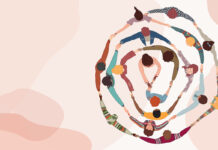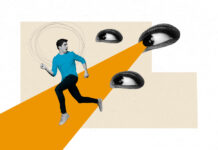The War on Suicide Is Making Things Worse
While allegedly intended to help, institutionalizing people against their will does more harm than good. Psychiatric coercion is dehumanizing.
May Cause Side Effects–Radical Acceptance and Psychiatric Drug Withdrawal: An Interview with Brooke Siem
Brooke Siem discusses her experiences of being medicated with antidepressants as a teenager, her withdrawal from a cocktail of psychiatric drugs and her debut memoir, May Cause Side Effects.
Dostoevsky: A Psychologist We Can All Learn From
Psychology has greatly broadened its scope since Nietzsche’s day and yet his implied criticism is one the discipline is still wrestling with.
Critical Psychiatry Textbook, Chapter 16: Is There Any Future for Psychiatry? (Part Three)
Psychiatry forcefully maintains its delusions, even when the most reliable science has shown that their beliefs are wrong.
Why Failed Psychiatry Lives On: Its Industrial Complex, Politics, & Technology Worship
By embracing the widely popular technology-worship “religion,” psychiatry is permitted to ignore the reality that its repeated failures are evidence that its fundamental paradigm is misguided.
Recovery of Soul After 22 Years on Antipsychotics
After 22 years and many attempts I finally stopped taking antipsychotics. I still feel weak and quite injured by the accumulated doses of numbing drugs, though I feel brighter, and love life more than ever.
Grant, Interrupted: An Introduction and Report Back from Oregon
We hope the Oregon Health Authority can overcome its critics and get back on track to doing what it set out to do: creating peer support respites led by grassroots groups.
Branding Diseases—How Drug Companies Market Psychiatric Conditions: An Interview with Ray Moynihan
MIA’s Ayurdhi Dhar interviews Ray Moynihan about the marketing of disorders, broadening of diagnoses, and harmful treatments.
Reality According to Whom? Listening to My Wife—and The Problems with ‘Psychosis’
Sam Ruck shares an excerpt from his book "Healing Companions," which describes his life with, and love for, his wife and her “alters.”
Critical Psychiatry Textbook, Chapter 16: Is There Any Future for Psychiatry? (Part Two)
Peter Gøtzsche discusses how critics of psychiatry are silenced in top medical journals and in the media.
Reflections on the RADAR Study
We still do not have adequate data to guide us on how to best reduce relapse risk; however, I think there are reasons to taper slowly.
On Psychotherapeutic Literacy
The counselor, a rather awkward individual, did his best to play the role of an effective psychotherapist. Our sessions continued to be a quiet standoff, a battle of nerves to see who would break the silence first.
Survivors and Families Working Together For Change: A New Project
Based on his lived experience, Ron Bassman describes his efforts to create an educational and support program that links families with survivors.
Mental Health Staff Reluctant to Support Service Users in Tapering Antipsychotics, Study Finds
Study reveals schizophrenia patients find little support from mental health staff in reducing side effects-heavy drugs.
How Mad Studies and the Psychological Humanities are Changing Mental Health: An Interview with...
In this interview with MIA's Justin Karter, psychiatrist Bradley Lewis discusses the value of art, the humanities, and mad studies in shaping a richer understanding of psychological experiences.
Medication Overload, Part II: The Explosion of Drugs for Kids
An analysis of the huge increase in drugs for children, the role of Big Pharma, and a look at the impact on families and communities.
Critical Psychiatry Textbook, Chapter 16: Is There Any Future for Psychiatry? (Part One)
Peter Gøtzsche discusses the myths perpetuated by mainstream psychiatrists and the dishonest way they respond to critics.
Not Before Time: Lived Experience Led Justice and Repair
A landmark report has been released exploring possibilities for acknowledging the harms people experience in mental health systems.
What Happens When There Is No Help?
My family and my rapists, abusers and psychiatrists all had it in common that they wanted me to “take something” to become more obedient and quiet.
Global Psychiatry’s Attempt to Excommunicate the Former UN Special Rapporteur on the Right to...
The UN reflected a middle-ground position for human rights-based mental health, but the response from psychiatric organisations was hostile.
Ten Years Later: Still Shooting the Odds
Unfortunately, the problems that sometimes occur when people try to stop an SSRI antidepressant are still severe and long-lasting.
Students Don’t Need Spying, They Need Trust
Surveillance exacerbates anxiety, destroys trust in relationships, and diverts money away from effective treatment.
Critical Psychiatry Textbook, Chapter 15: Withdrawal of Psychiatric Drugs
Peter Gøtzsche discusses withdrawal and how to taper off psychiatric drugs.
What the RADAR Trial Tells Us About Antipsychotic Reduction and Discontinuation
Although the trial showed that you are more likely to relapse if you stop or significantly reduce your antipsychotic medication, it did not show that relapse is inevitable.
Remembrances of Linda Andre, Leader in the Fight Against ECT
Psychiatric survivors and allies mourn ECT activist and author Linda Andre and vow to continue her legacy.

































